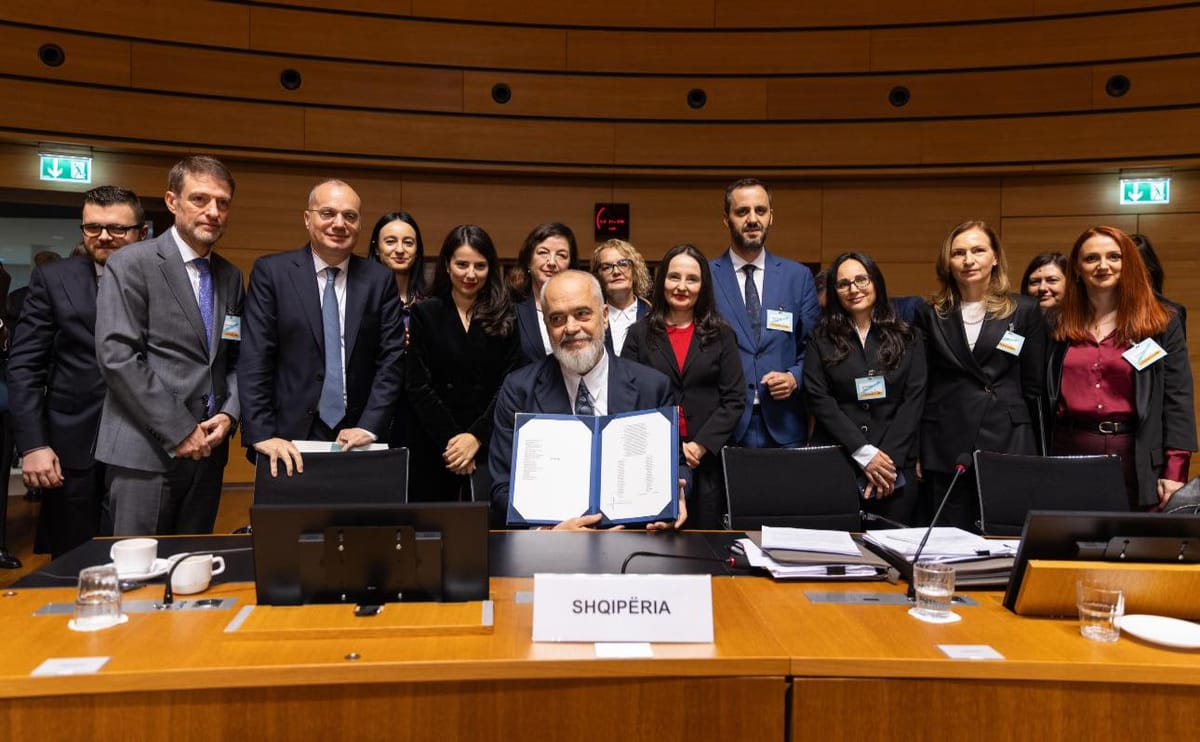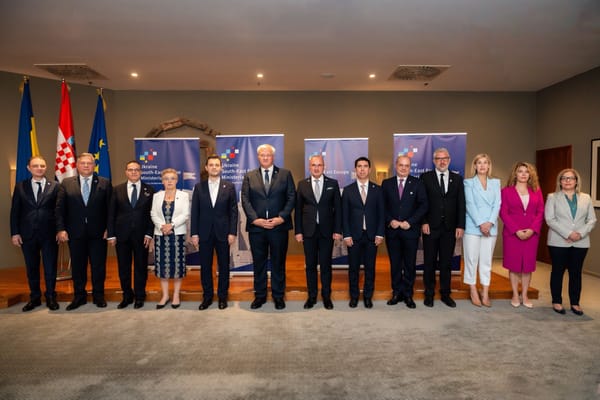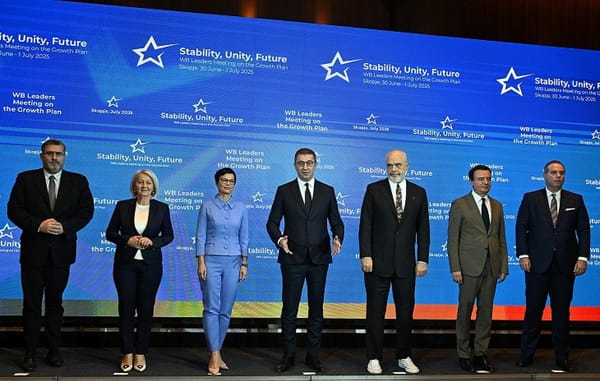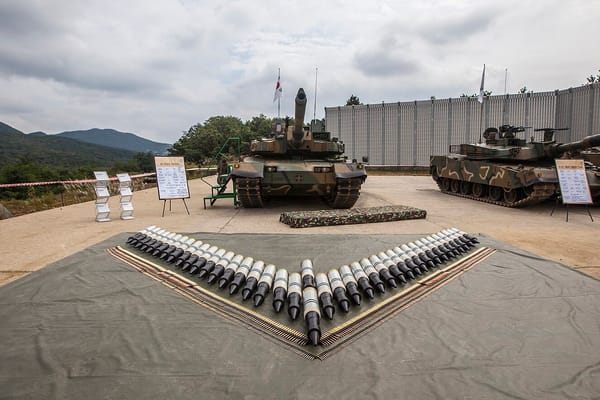
Albania opens first EU-accession chapters
Albania’s bid to join the EU gained momentum at the latest intergovernmental conference that marked the opening of formal EU accession talks in Luxembourg on Tuesday, October 15.
The talks focused on the first cluster of chapters known as the “fundamentals,” which include human rights, rule of law, and democratic institutions. Albanian Prime Minister Edi Rama expressed the country’s ambition to become a full member of the EU by the end of the decade, despite significant challenges in combating corruption, reforming the judiciary, and improving media independence.
The EU wants to expand its borders in the wake of geopolitical shifts caused by Russia’s full-scale invasion of Ukraine in February 2022, and Albania’s accession is seen as critical.
Albania is one of eight countries currently vying for EU membership, alongside Bosnia and Herzegovina, Georgia, Moldova, Montenegro, North Macedonia, Serbia, Turkey, and Ukraine.
The European Commission (EC) gave a largely positive assessment of Albania’s efforts but said more work is needed in areas of public life where corruption remains “prevalent”.
Albanian ambition
Rama described the accession talks as “historic” for Albania and outlined his government’s goal to complete the accession process within the next six years. “We aim to knock on the door of the European Council as a member state by the end of this decade,” he said.
Rama acknowledged the magnitude of the task but remained optimistic: “This is a very ambitious plan, but we are working closely with the European Commission (EC) and have a clear roadmap in place. We count on our friends and partners to help us achieve this.”
In its joint position paper with Albania, the EU praised the country’s advancements in implementing EU laws, but corruption remains a major obstacle. “Corruption is prevalent in most areas of public and business life, including in all branches of central and local government,” the EC stated. The fight against corruption and organised crime is central to Albania’s reform agenda, and failure to tackle these issues could slow its progress toward membership.
Hungary FM optimistic on Albanian accession
Hungarian Foreign Minister Peter Szijjarto chaired the conference and said Albania could open new chapters by the end of 2024. “Albania is ready, and I hope all bureaucratic homework is done soon,” he said, adding that Albania could join Montenegro as a frontrunner in the race for EU membership.
Rama said: “We know it’s still a long way, and we don’t have illusions about how tough this will be. But for us, there is no Plan B. EU membership is a matter of life and death for Albania.”
The outgoing European Commissioner for Neighbourhood and Enlargement, Oliver Varhelyi, expressed confidence in Albania’s ability to meet its 2030 deadline, citing the EU’s new EUR 6bn Western Balkans Growth Plan, which comprises EUR 2bn in grants and EUR 4bn in loans, and is designed to incentivise reforms and help integrate the southwestern Europe region’s economies with the EU.
“The Growth Plan should allow us to see tangible progress by the end of the next EC’s mandate,” Varhelyi said, adding that the EU’s upcoming budget framework presents “a big opportunity” for further enlargement discussions.
Regional tensions, political instability
At home, domestic political tensions are escalating. Recent protests were sparked by the imprisonment of a Democratic Party member, part of the pro-EU opposition, on charges of slander. Opposition supporters clashed with police in Tirana, demanding Rama’s resignation for attempting to silence critics and undermine political rivals.
Meanwhile, numerous high-profile corruption cases against Rama’s government are in progress, and amid corruption, media independence, and political instability issues, it remains uncertain whether the country will meet its 2030 goal.





